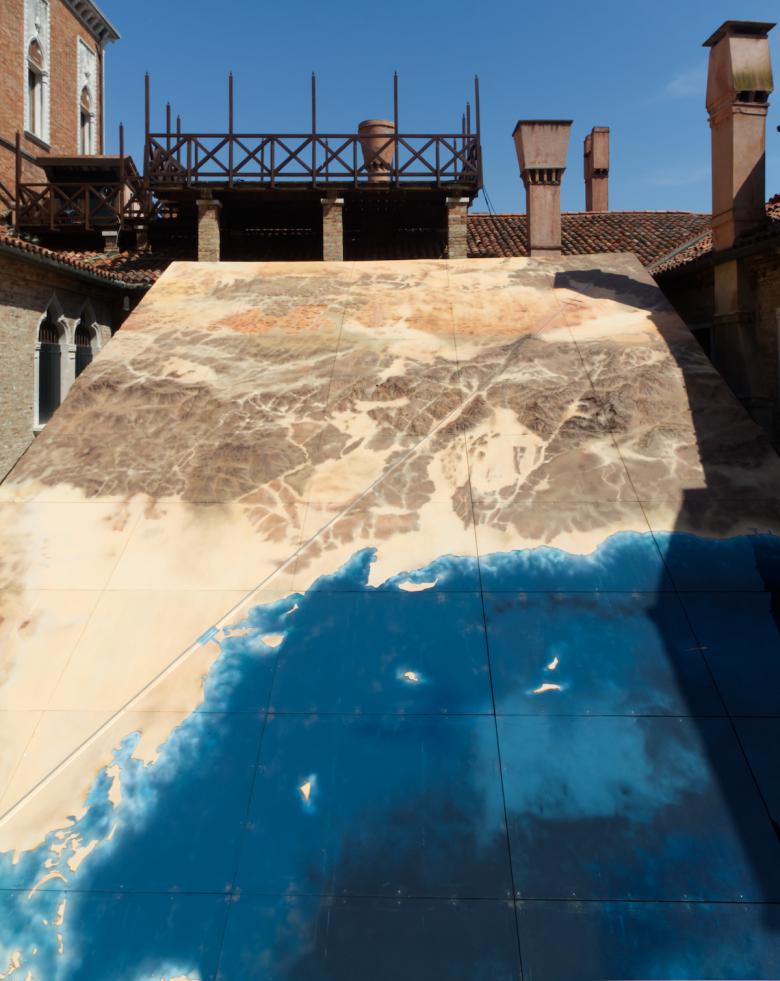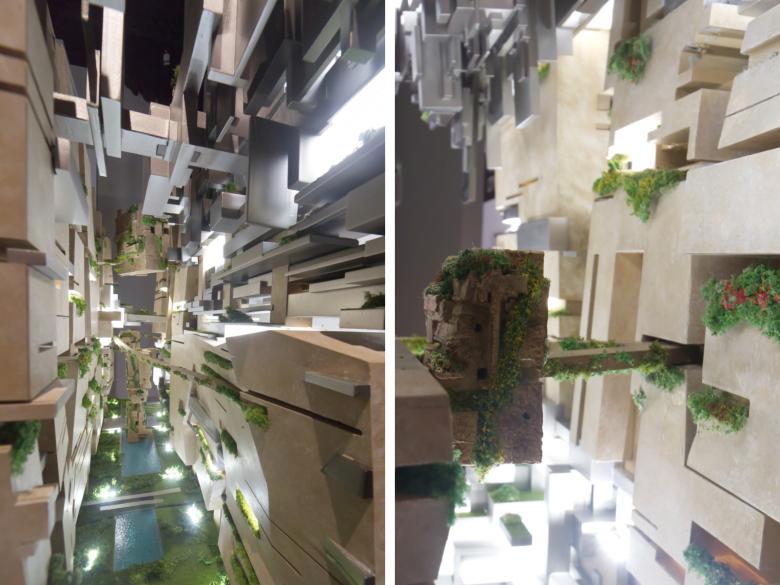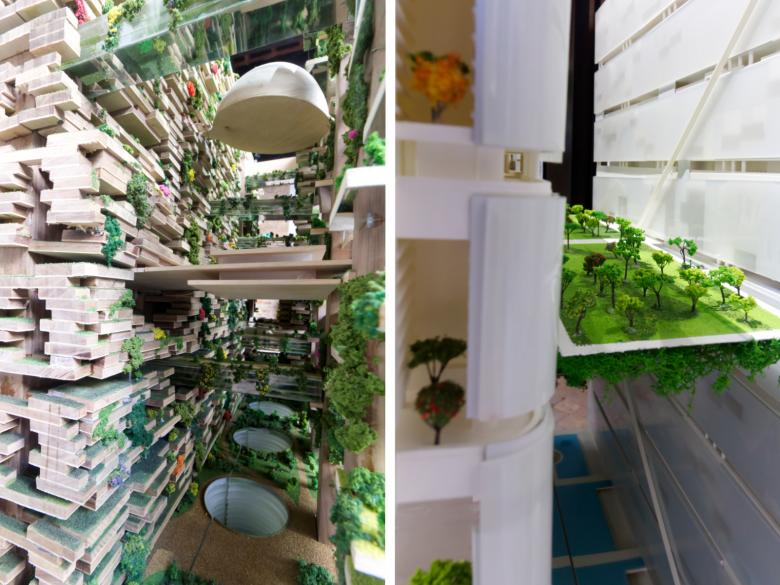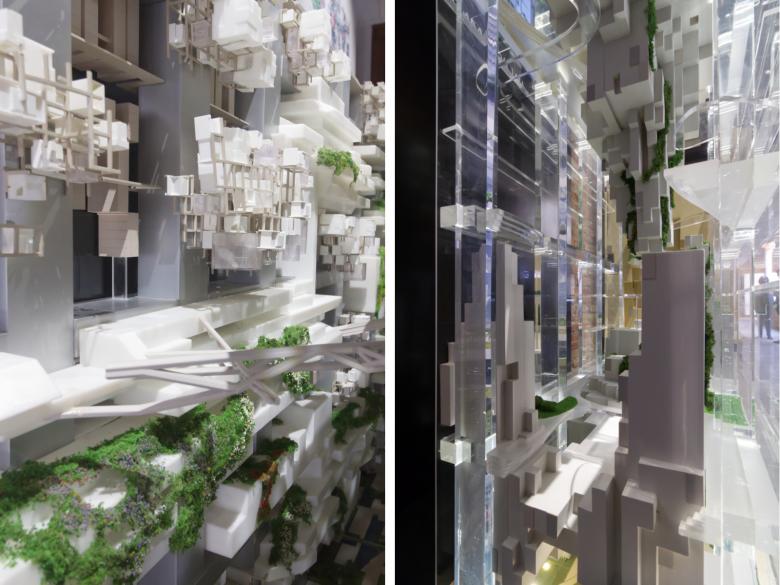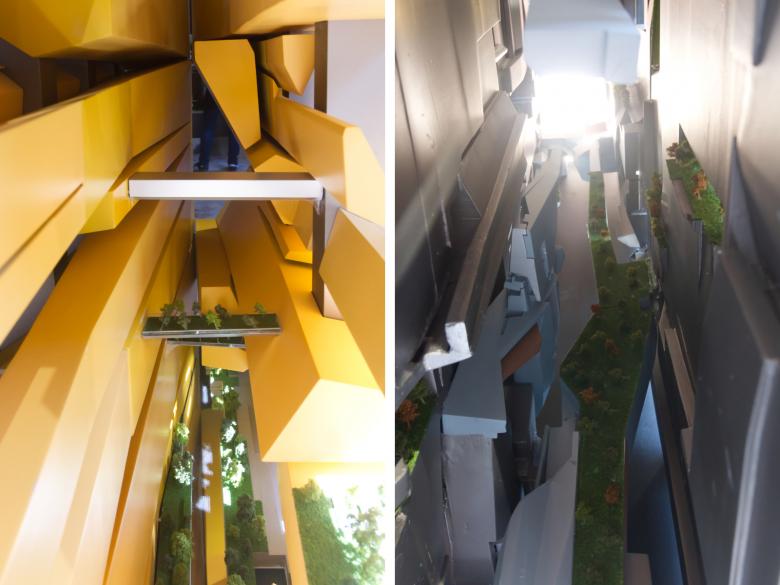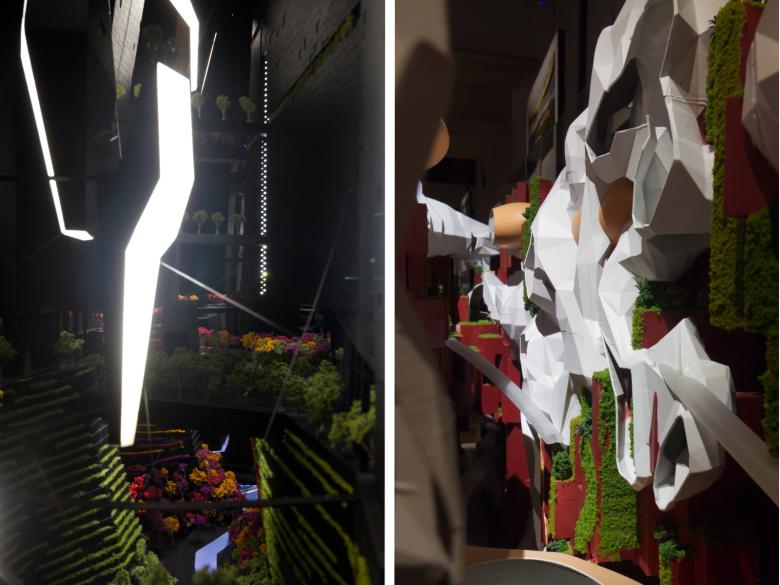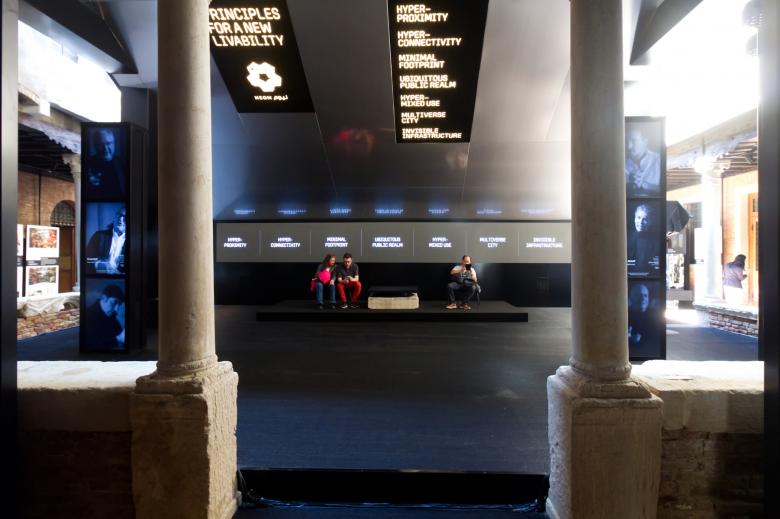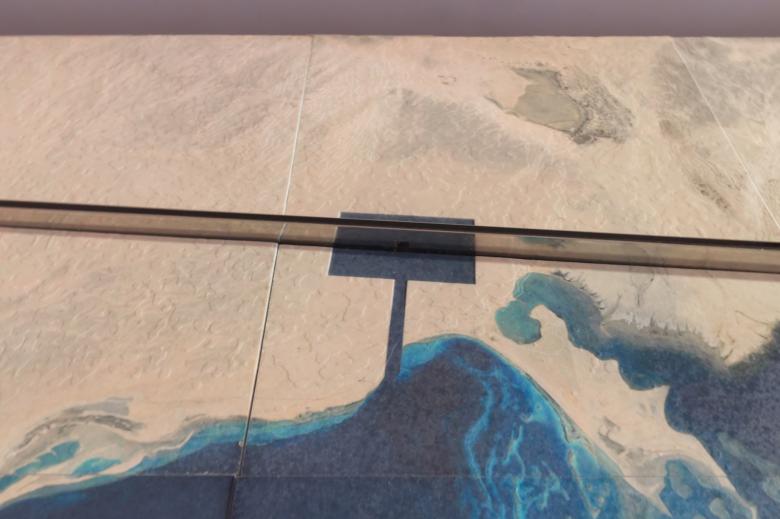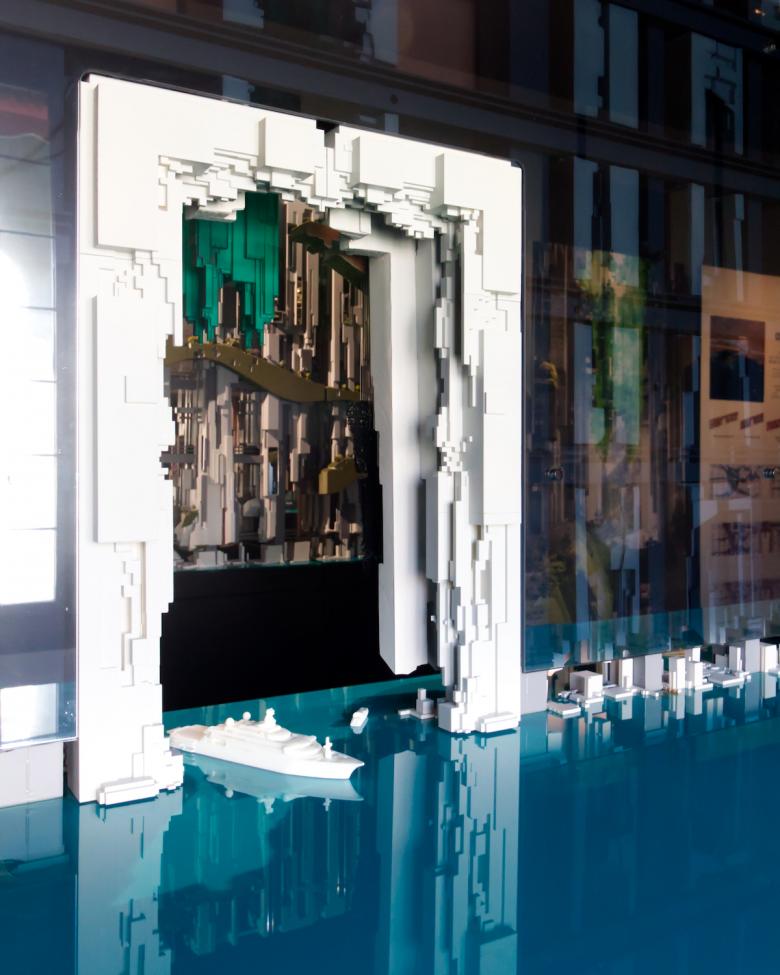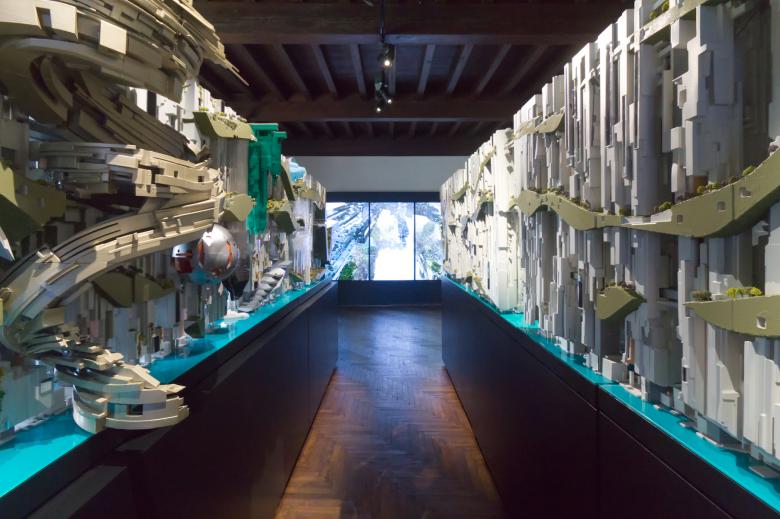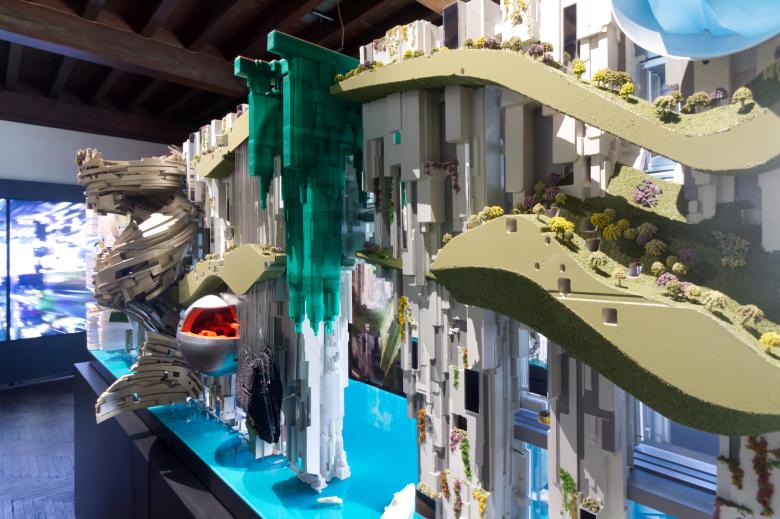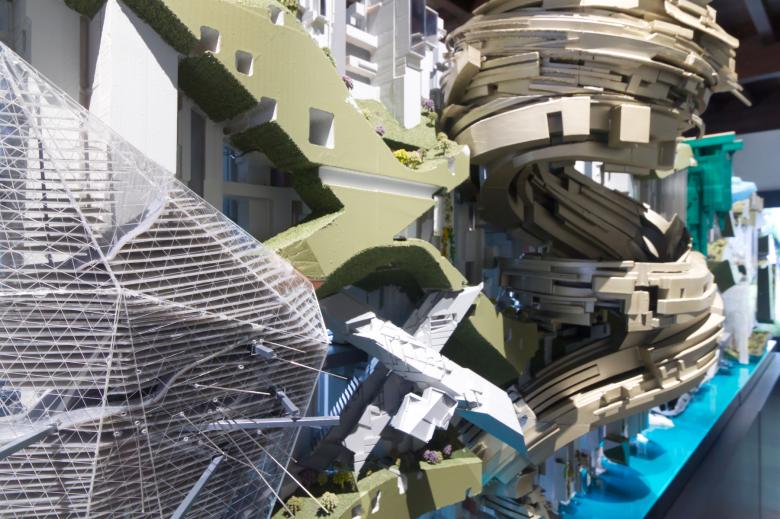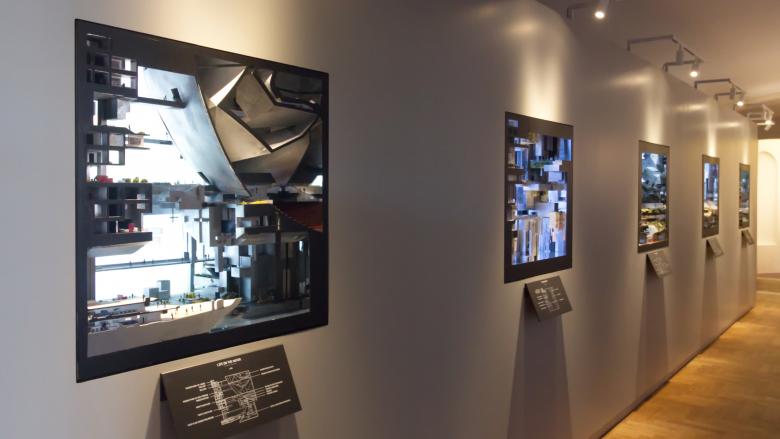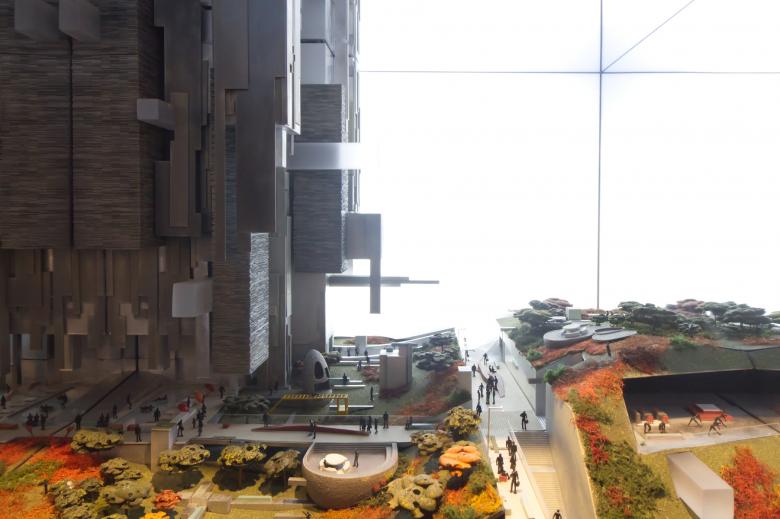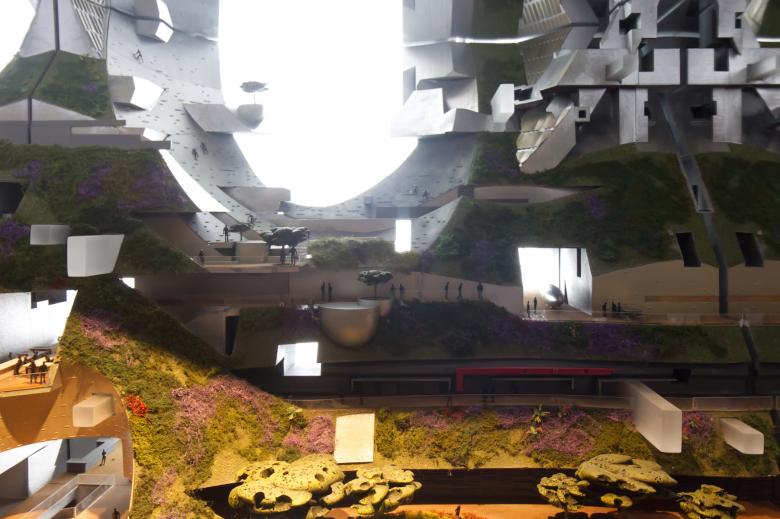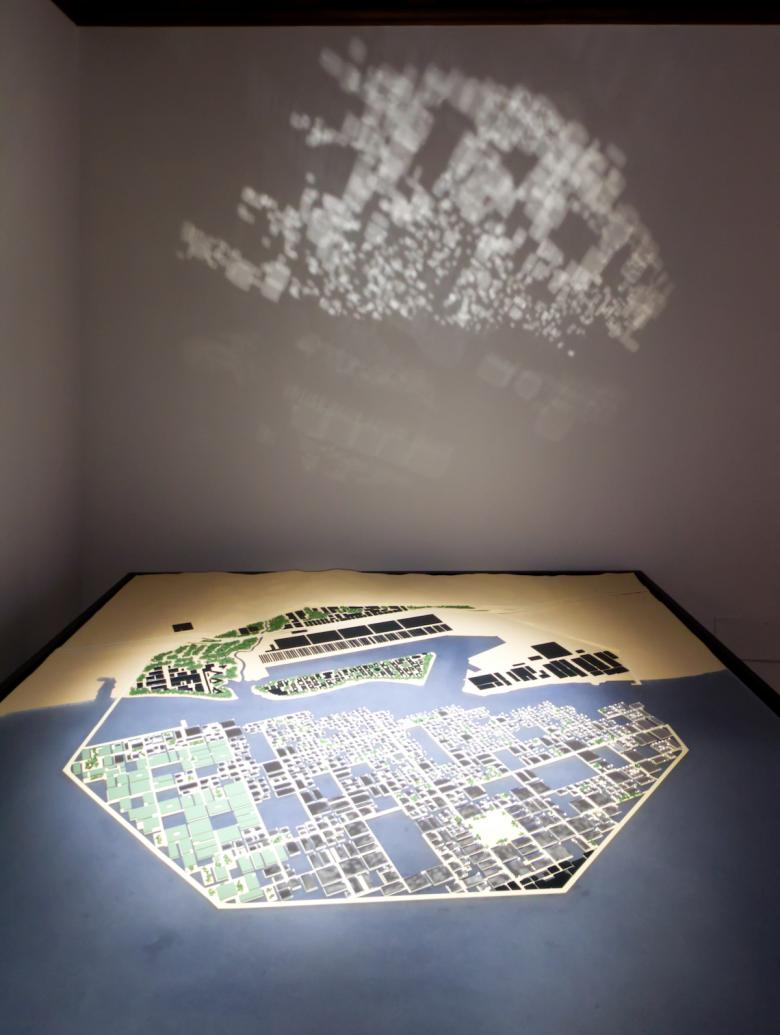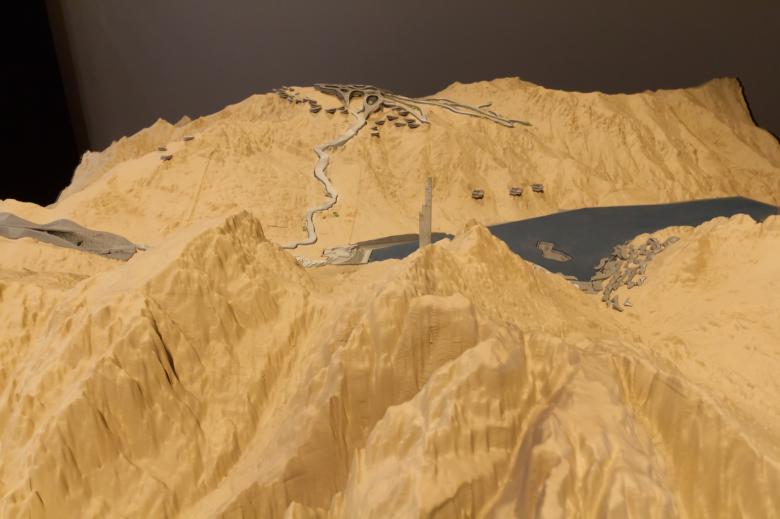Designs by Morphosis and other big-name architects for The Line, the flagship project of NEOM in Saudi Arabia, are on display in Venice as part of Zero Gravity Urbanism—Principles for a New Livability.
Since Saudi Crown Prince Mohammed bin Salman unveiled The Line in early 2021, the proposed "revolution in urban living" has been met with equal levels of astonishment, incredulousness, and disdain. Compact urbanism that reduces the need for automobiles and preserves wilderness is certainly commendable, but is a Superstudio-esque line in the desert — one that would be 500 meters tall, 200 meters wide, and a whopping 170 kilometers long — the way to achieve sustainability? It is hard not to question the assertions behind the supposedly zero-carbon linear city for 9 million people (a little bit bigger than the populations of New York City or Switzerland), with the enormous amounts of concrete, steel, and other not-even-close-to-zero-carbon materials needed to erect a structure on such a scale. Stories of the potential executions of members of the Howeitat tribe, simply because they resisted forced evictions for construction of The Line, only add fire to the many criticisms over the megaproject.
The exhibition in Venice, Zero Gravity Urbanism—Principles for a New Livability, does little to assuage skepticism over the project, given the plethora of formal designs rooted in Nineties-era Deconstructivism and devoid of any apparent thinking on contemporary considerations like adaptive reuse, net-zero construction, or social housing. Visitors to the exhibition, which is more marketing than culture, immediately confront a large model inserted into the courtyard of the venue, Abbazia di San Gregorio (photo at top); the plane of the model is angled from the Red Sea near the base to the mountains and valley in the distance.
The courtyard is rung by models from a handful of architecture firms with designs for different neighborhoods or “modules” of The Line, with even more models and schemes found in rooms off the courtyard: nine in total. One can assume that, if built, designs by these and most likely even more architects would abut to form the whole of The Line, with the character of each module unique due to the architects involved. The models on display reveal the basic parti of The Line: parallel 500m tall “buildings” 200m wide with mirrored glass facades facing outwards and a narrow canyon-like space in the middle, where bridges and other elements connect the two halves. Here are photos of the models by the nine architects/firms/teams:
Beneath the large model in the middle of the courtyard is a relatively dark space set up for events or just sitting and absorbing the “Principles for a New Livability” through texts with key phrases and pylons displaying short videos with Thom Mayne and other key players on the thinking behind their designs and the whole undertaking.
Unfortunately, four videos are displayed simultaneously in this echoey space, resulting in a cacophony of voices — much like the overall exhibition itself and the designs for The Line. Just try deciphering what exactly Thom Mayne is saying, without looking at the captions:
One flight upstairs are even more models, most of them describing the Hidden Marina, a 2.4km section of The Line that is the first phase of the project, and where construction has already started.
The design for the Hidden Marina is by Thom Mayne and Morphosis, "from prior concepts … developed by Olivier Pron," per the exhibition catalog. With the marina on both sides of The Line, two gateways allow vessels — clearly luxury liners, from the renderings and models — to dock.
A model, considerably larger than those downstairs, sits in the middle of room, its two halves pulled apart so visitors to the exhibition can walk down the center and get a closer look at the formal flourishes, the network of vertical landscaping, and other features.
Another room offers an interactive flythrough of four designs for The Line. I recorded this short when one visitor was moving through the design by Adjaye Associates:
In addition to The Line, the exhibition features models and other brief information on other NEOM projects:
